
Our ambition is to show industry leadership on food waste, amplify redistribution to those most in need and enable a lasting positive impact in the community.
Targets
- Reduce food waste in our own operations by 20% by 2025 and halve it by 2030 (against a 2022 baseline).
Our approach
Food waste and hunger are urgent environmental and humanitarian challenges. At Ocado Retail, we recognise our responsibility and prioritise reducing food waste and increasing redistribution to address these pressing issues.
Globally, one-third of all food produced for human consumption is lost or wasted, impacting food security and the environment. Ocado Retail has long partnered with social enterprises, charities, food banks and initiatives to tackle food redistribution, including providing donations of groceries, cash and operational assets such as vehicles.
Since 2005, we have been a signatory of the UK Food and Drink Pact , a voluntary agreement that enables collaborative action on food waste across the UK food chain to deliver reductions in food waste and greenhouse gas emissions. We are also signatories to the Food Waste Reduction Roadmap that aims to minimise food waste across the value chain.
Our partnerships
Our commitment to community partnerships has deepened. Marking five years with The Felix Project, we’ve supported delivering over four million meals to those in need, including two million in 2024 alone. Alongside our two key charity partners, Community Shop and The Felix Project, we support a network of UK charities including Magic Breakfast, Dens and Ediblelinks. Find out more about our partnerships in the Communities section.
Farm to Freezer

Our support extends beyond food donations; we’re proud partners and sponsors of the forward-thinking pilot Farm to Freezer. This programme, developed in support of the Coronation Food Project, inspired by His Majesty King Charles III aims to unlock more surplus farm produce while using innovative preservation methods. This includes juicing, jamming, chopping and freezing to extend shelf life, increase food security and reduce waste.
In 2024, an estimated 350 tonnes were rescued from growers and producers through the Farm to Freezer project. This was food that, were it not for the funding, would have remained inaccessible to Felix, but significantly contributed to their 38 million meals total achieved for 2024 instead, exceeding the charity’s initial target of 35 million.
We are excited to support the project for a second year in 2025, aiming to help expand its capabilities, advance manufacturing processes and adopt innovative food solutions to significantly increase food volumes rescued.
Our performance
In 2024, food waste amounted to 0.49% of food handled (0.43% in 2023 ). This is a 17% reduction against Ocado Retail’s baseline (0.59% in 2022). We measure our food waste in line with the Food Loss and Waste Protocol (FWLP). The methodology measures food waste as a percentage of “food handled” by weight.
Food handled is defined as food sold + food redistributed (to charities, zoos, etc) + food waste (inedible food that is unable to be redistributed for animal or human consumption, instead sent to anaerobic digestion). It excludes non-food products and packaging weight.

We established our baseline in 2022: 0.59% of food handled in our operations ended up as waste. In 2023, food waste was reduced to 0.43%, which represents a 27% reduction against the baseline.
A focus on operational efficiencies including better discount management, improved forecasting, proactive management of potential surplus with enhanced visibility, improved supply chain stock management, and better reporting has driven the reduction.

Our performance
Tackling food loss in our operations
Ocado minimises food waste through our efficient operations. Our unique technology accurately forecasts demand and optimises stock management, enabling automated replenishment and targeted stock management. This minimises over-ordering and optimises distribution to prevent unnecessary waste. Over 80% of orders are sold before arrival.
Our aim is for all edible food surplus (which is deemed safe for human consumption) to be redistributed to staff and via our established redistribution network including Company Shop and our charity partners. Inedible food is sent for anaerobic digestion, which then creates energy that powers our Dordon CFC.
We have started to explore opportunities for animal/insect feed where food is not suitable for human or animal consumption. No food waste is sent to landfill.

Tackling food loss in our operations
Maximising redistribution
We’re proud of our food surplus redistribution network connecting community partners with healthy, nutritious food.
From December 2023 to March 2025, we donated £3.7 million to our charity partners and environmental causes, in addition to £12.8 million in surplus stock to charity partners, with £2.8 million contributed by our customers.
2024 also marked five years of us supporting the Felix Project, a London-based charity that rescues and transforms surplus food into nourishing meals for over 1,200 community organisations, ranging from food banks and primary schools to homeless shelters.
Working closely with Ocado Group, we strive for maximum efficiency in redistributing products to realise their full usage potential.
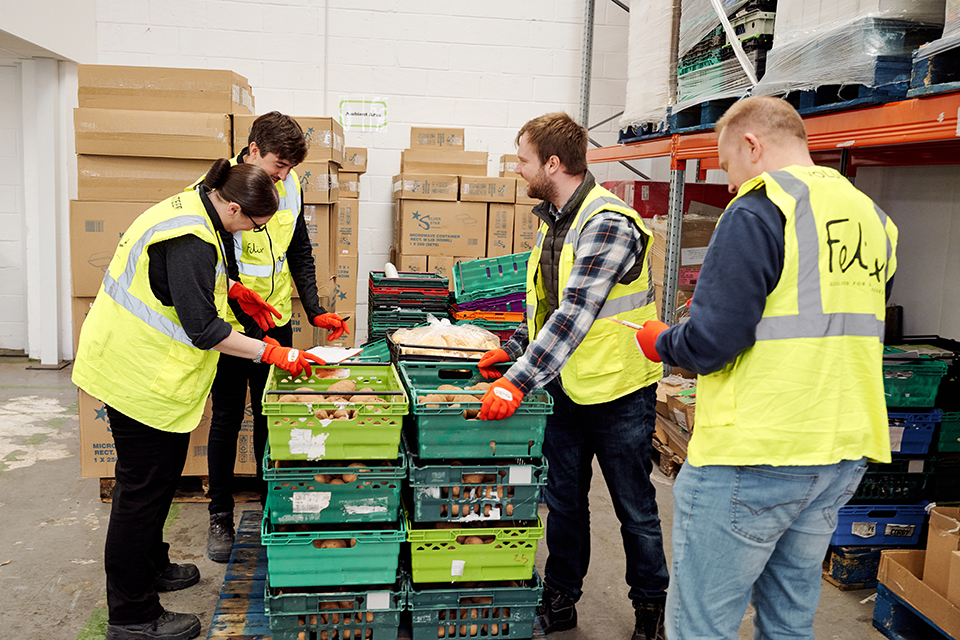
Maximising redistribution
Reducing waste in the supply chain
We partner with suppliers through Manufacture 2030, a platform which helps suppliers measure, improve and communicate their food waste performance.
We also optimise processes and packaging to maximise freshness and minimise damage. We follow WRAP’s best practices for redistributing our Own Brand products and are exploring farm-level surplus redistribution to reduce waste.
We are proud partners and sponsors of the Farm to Freezer pilot with The Felix Project. It supports The Coronation Food Project, inspired by His Majesty King Charles III, which aims to unlock more surplus food from the value chain to reduce both food waste and food insecurity. The pilot focuses on accessing surplus food at farms by using innovative ways of prolonging the life of foods including juicing, jamming, cutting, saucing, chopping and freezing.
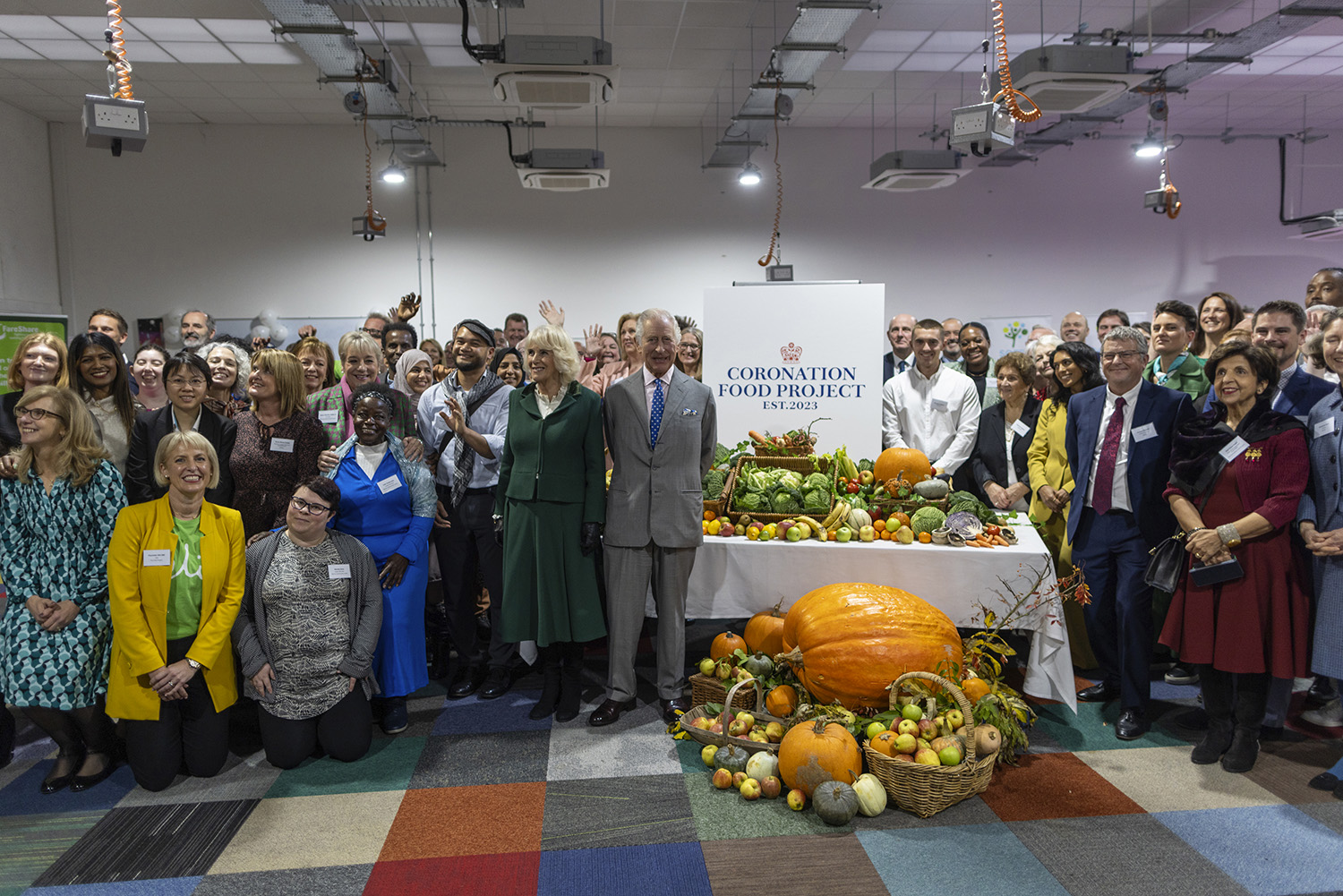

Reducing waste in the supply chain
Preventing food waste in the home
60% of food waste comes from households. We have a responsibility to empower our customers to prevent and reduce their food waste, with the added bonus of helping them save money.
- We make it easy: In 2024, we launched the Fresh+ Promise, maximising product life for customers by promising fresh food will be delivered straight to customers’ doors with no supermarket detour, helping them to plan upcoming meals. Our receipts are thoughtfully organised by expiry dates, enabling customers to prioritise items, plan meals and reduce food waste.
- We get customer insights: In partnership with WRAP, we trial interventions to reduce household food waste and continue to remove best-before date labels in our unprepared produce lines.
- We use innovation: We continue to build on the success of our 2022 pioneering trial with QR codes on our Own Range milk. We have expanded product QR codes to provide customers with real-time information, tips and recipes to prevent food waste.
- We support consumer campaigns: We proudly support WRAP’s Food Waste Week and conduct our own marketing initiatives to raise awareness and educate both externally and internally.
- We promote food waste recipes and tips: Through our OcadoLife magazine and charity partnerships, we provide food waste recipes and raise awareness about the impact of waste on food insecurity. In 2023, with Beano, we created the iconic comic’s first ever cookbook, to help families make their food go further, and take children and parents on a fun, food-fuelled journey through the joy of cooking. With WRAP and Beano, we created KS1 and KS2 lessons that teach children about the world’s food waste problem and equip them to reduce their own waste. We also have a dedicated low-waste recipes section on our website.
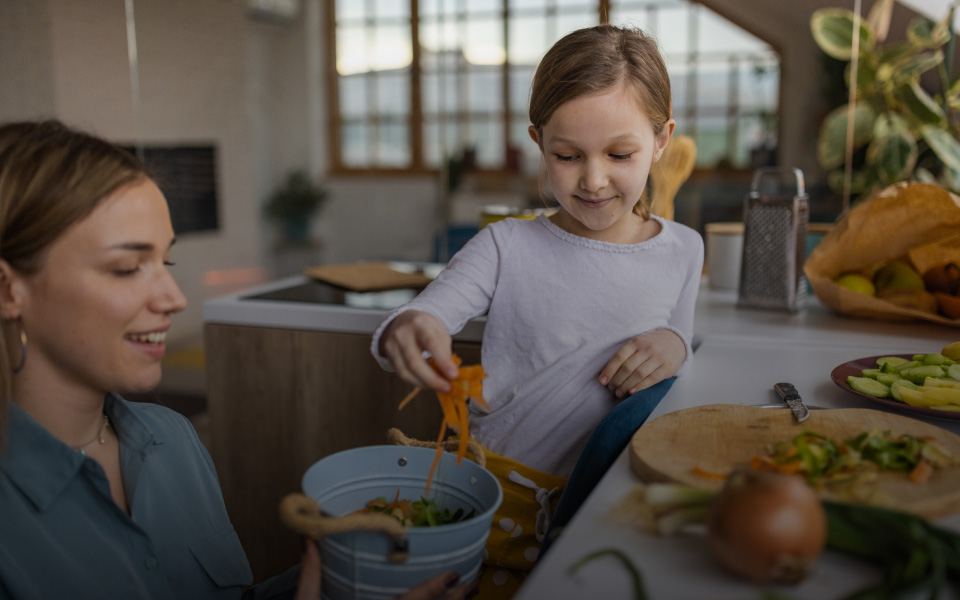
Preventing food waste in the home
12.8 million in surplus stock redistributed to our trusted network of charity partners in 2024.
More than 4 million meals donated to The Felix Project since our partnership began.
In 2024, sponsored Farm to Freezer pilot with Felix Project, who rescued an estimated 350 tonnes of surplus food from growers and producers. This is the equivalent of over 1.3 million meals.
Explore further

Farm to Freezer Impact Report 2024


Our Christmas Meals Food Redistribution Partnership with Community Shop

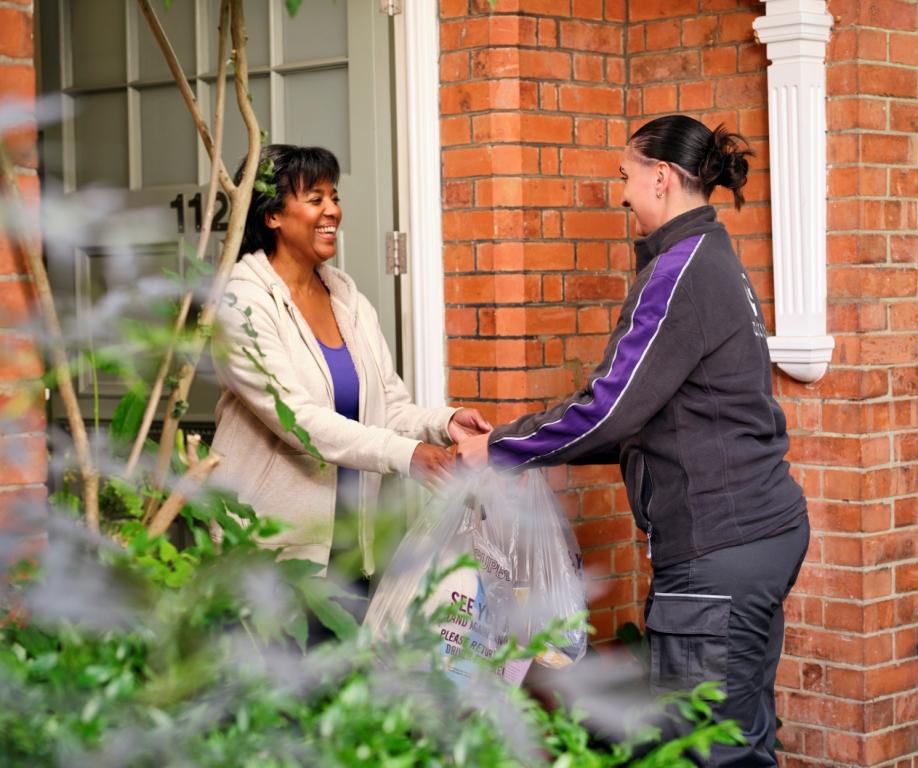
Household food waste levels threaten UK’s carbon reduction ambitions: WRAP & retailer collaboration

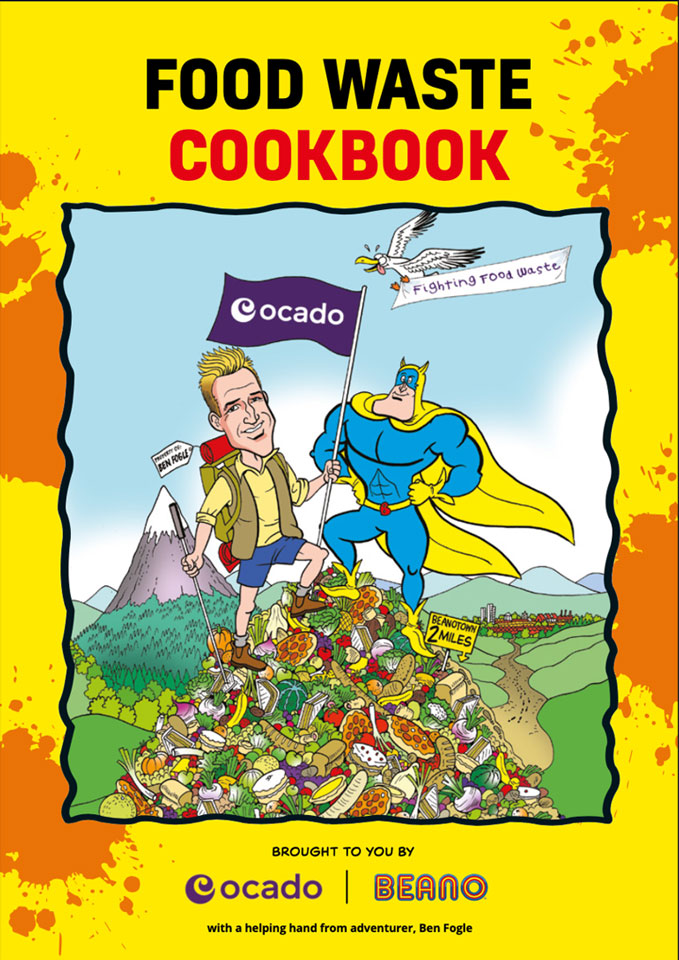
Ocado and Beano food waste cookbook
